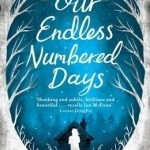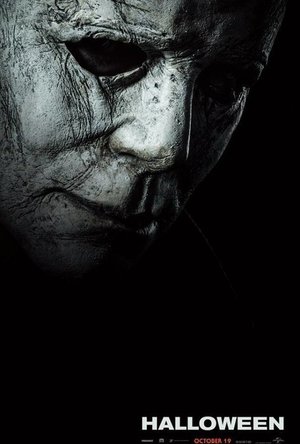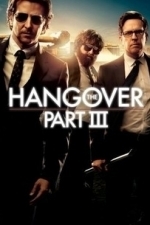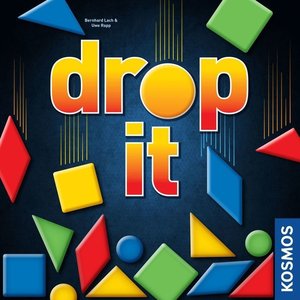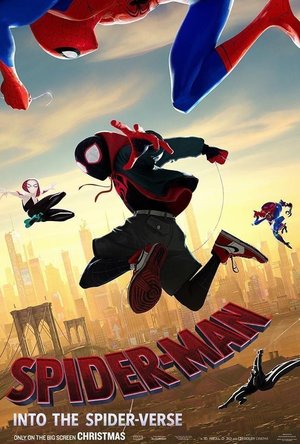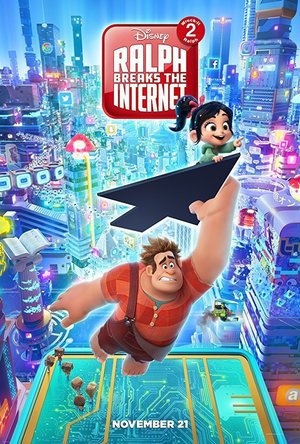Goddess in the Stacks (553 KP) rated Our Endless Numbered Days in Books
Sep 26, 2018
Peggy's narration does seem childlike, often. While at the beginning of the book, that can be excused because she is eight years old, by the end she is seventeen, yet still talking about things with a child's understanding. I thought that was the effect of Korsakoff's syndrome, not that she was entirely making some things up.
In our endless numbered days, Peggy is effectively kidnapped by her father when she is eight, and taken to some place deep in the German forest. She spends the next nine years alone in the forest with him, trapping squirrels, gathering roots and berries, and growing simple crops in a small vegetable patch. He tells her, repeatedly, making her repeat it back to him, that the rest of the world was destroyed in a massive storm. They are the last two people alive in their small, sheltered valley. She doesn't question it until she sees a man in their forest, and that eventually leads her to find civilization again. The book is told in two timelines, flashing back and forth from her memories of her time in the forest, and the present where she's attempting to re-acclimate to London.
I'm not really sure what to believe; Peggy's memory or what her mother thinks happened. There are just enough oddities to make either story plausible. I think I prefer Peggy's version. But that's the trouble with unreliable narrators; there's no way to actually know. I don't like ending a book frustrated. Books should make you feel things, yes, but frustration is an odd emotion to aim for.
This book is odd.
You can find all my reviews at http://goddessinthestacks.com
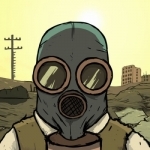
60 Seconds! Atomic Adventure
Games
App
60 Seconds! is a dark comedy atomic adventure of scavenge and survival. Collect supplies and rescue...

NOAA Weather Radar.
Weather and Travel
App
Make the most of the real-time animated radar images on a highly responsive interactive map. Severe...

iWatermark+ Batch Watermark
Photo & Video and Entertainment
App
Essential Batch Watermark & Watermarking App for Professional and Beginning Photographers....

Montessori Preschool
Education and Games
App
Looking for an engaging digital preschool app based on a proven teaching method? Montessori...
Emma @ The Movies (1786 KP) rated Halloween (2018) in Movies
Sep 25, 2019
Anyway, to the film!
Having just seen the original I found it very easy to draw parallels between the two. The links were everywhere and it made for a nice familiar touch, which I found surprising as it isn't a film that I'm really that well versed in.
The opening credits were obviously a highlight and it was fun to watch the scene unfold, literally. Having not seen many of the other Halloween offerings I don't know how they dealt with Michael and Laurie's connection, not that it really matters I suppose as they tossed out the rest of the timeline out of the window for this one.
Comparing the two films you can really see how they've given Laurie some of Michael's traits. He's so much a part of her that she's even taken to lurking like him outside the school watching her granddaughter. She progresses through the film much like he did in the first, with little flashes of him in her actions like when we see her exit a restaurant and stand at the end of the path like he did after murdering his sister.
We see the escape from the transfer but we don't really know how it happened, although I had my suspicions. Yet again we see a mirror of events from the first film. The patients are roaming around and Michael attacks without mercy to get what he wants/needs.
I'll take a quick diversion here to talk about one of my dislikes about the film. The journalists doing the interviews with Michael and Laurie. I understand why they were there. Michael needed to get his identity back and some groundwork needed to be laid so that the audience could see what Laurie had been working to her whole life... but... I didn't find either character to be particularly effective and the small monologues for the tape seemed poorly executed. Yes, yes, they're just making audio notes for the final piece, but as a film they're supposed to be crafting the scene in a way that flows, and they really don't. Of course as I said, they need to be there so that Michael can get his face back so *shrug* their fate wasn't such a sad one for the story line.
I think what makes Michael so effective as the bad guy is that he's just so brazen. He's got one objective and his single mindedness means that he never stops. It doesn't matter that he's wearing his hospital clothing, he has to do something and that confidence makes him invisible to almost everyone until it's too late. Seeing him in the background of shots brings on the anticipation of what's to come. When it's dark you're squinting at an area that seems unusually framed waiting to see that face emerge from the gloom. It works incredibly well and brings almost a glee to the watcher. You know something that the characters don't... you could survive this thing.
Movies these days seem to be finding some very talented kids and the writers are furnishing them with excellent lines. Jibrail Nantambu as Julian, the ill-fated babysitting job of Haddonfield, brings the comedy in what is otherwise the bleak slasher-fest you'd expect. He's got the witty banter, the attitude, and he delivers perfectly. Watch out for my favourite piece of the movie where Vicky his babysitter attempts to go and investigate for a possible intruder. Julian knows where horror films are at, and he knows who's expendable, good job kid.
As a sequel I think it works really well. Trying to erase the knowledge that there were films in between was challenging though. It's an 18 certificate though and the more I watch them these days the more I wonder exactly how TV and film has jaded my perception of things. Sure, there's a lot of murdering! But none of it seemed particularly graphic or violent to me. Like I say... perhaps I've just become accustomed to it.
What you should do
If you enjoy horror films then I think this one would appeal. Especially if you see the original before you go. I'm sure it would work as a standalone film with only basic knowledge of the first, but there's no denying how well they'll work together in a double bill.
Movie thing you wish you could take home
As with the original, I would still like some of Laurie Strode's luck at surviving against the odds.
Gareth von Kallenbach (980 KP) rated The Hangover Part III (2013) in Movies
Jun 19, 2019
The films starts with dysfunctional Alan (Zach Galifianakis), creating a spectacular mess and being his usual spoiled and oblivious self though the consequences which have tragic ramifications. His friends Stu (Ed Helms), Phil (Bradley Cooper), and Doug (Justin Bartha), decide that an intervention is needed and convince a reluctant Alan to get some help from a clinic in Arizona.
En route, the group is run off the road which results in Doug being held hostage by a criminal (John Goodman) who wants to use the group to bring in insane criminal Leslie Chow (ken Jeong). The group is told they have three days to find Chow and save Doug. It turns out Alan is the only one to have any contact with Chow since he was incarcerated. The guys soon find themselves in Tijuana hatching a desperate attempt to capture and return the demented Chow.
Naturally things do not go as planned and despite their best intentions the group only makes matters worse and sets a chain of events into action which bring them full circle in a race against time to save Doug.
This time out the film has ramped down the gross out humor of the first films aside for one epic scene following the credits. The film has some chuckles along the way but lacks the jaw dropping shock humor that defined the previous films. I spent the majority of the film enjoying the cast but waiting for the big comedic payoff to arrive which sadly did not come until the after-credits scene.
The cast works well with the material but it does seem like they have run out of ideas and are going through the motions. The addition of Melissa McCarthy does add some nice moments to the film and does leave open some ideas should they decide to continue the series despite promising that this is the conclusion. In the end it is a nice enough diversion but for me was neither as enjoyable nor memorable as the previous efforts.
http://sknr.net/2013/05/24/the-hangover-iii/
Purple Phoenix Games (2266 KP) rated Drop It in Tabletop Games
Oct 22, 2019
Did you ever play Connect 4? Who am I kidding, of course you probably did. Drop It is essentially an abstract version of Connect 4. In Drop It, players take turns dropping their pieces into the slot board in an effort to amass the most points. Each player has a set number of pieces in their specific color, and in various shapes. The rules of Drop It are simple – pick a piece and drop it (roll credits) into the board. You earn points for the highest level that your piece crosses into, as well as bonus points for touching various smaller areas across the board. Sounds easy enough, right? Well here’s the tricky part. If your piece touches another one of your pieces, even if by just a hair, it earns you no points. Similarly, if your piece touches another piece of the same shape (regardless of color), you earn no points as well. AND on top of that, certain areas along the bottom and sides of the board are colored and are not allowed to be touched by their corresponding colored pieces. If a piece touches one of those forbidden zones, then that player earns (you guessed it) no points. So all in all, not as simple a game as it looks, is it? The player at the end of the game with the most points is the winner!
Man, Drop It is a neat little game. When I first heard of it, I thought it would be the easiest game on the planet. But boy oh boy was I wrong. Although I’d say this game is primarily one of dexterity (and luck), there is definitely quite a bit of strategy involved. Because there are several placement restrictions, you have to be careful about which pieces you play at what times. The circles roll around on pretty much anything, so do you risk dropping one when it might just roll onto your square and negate those points? Can you drop your trapezoid at the right angle to have it span two other pieces and miss landing on yours in the middle? All while making sure it doesn’t hit the left side of the board here? It is way more strategic than meets the eye, and I love that. It keeps me engaged the entire game, and it elevates the game to a higher level than just simple dexterity.
Whatever strategy you choose must involve your opponents as well. Even though there is no real player interaction in Drop It, you’ve got to keep an eye on your opponents and which pieces they play at what times. If another player just dropped their square right in the middle of the board, you probably should not drop your square right now. Unless you don’t want points. Then by all means, drop your square right on top of that sucker. Are you able to keep a variety of shapes throughout the game, or will you get cornered for several turns because all you have left are your circles? You’re not only thinking of your strategy, but that of your opponents as well.
One other thing that I love about Drop It is that once a piece is scored, it is out of your mind. What I mean is that in some cases, dropping a piece causes those underneath to shift. You only score the piece that was just dropped – regardless of how it moved any pieces underneath. That definitely helps to keep the game moving because you are not having to constantly go back and re-score any shifted pieces. That would just be brutal.
Overall, I really like Drop It. It’s not one that I personally own, but it definitely is on my Wish List after having played it. It’s the perfect little filler game for in-between some meatier games. Although it requires strategy, the dexterity aspect of the game makes it more light-hearted, fun, and fast to play! Purple Phoenix Games is dropping a score of 14 / 18 for this little gem.
Gareth von Kallenbach (980 KP) rated Spider-Man: Into the Spider-Verse (2018) in Movies
Jul 2, 2019
It’s hard to believe that the movie I would end up saying that about would be an animated one. Nevertheless, I left the theater this time feeling a sense of warm satisfaction for the first time since Sony originally graced us with Tobey Maguire.
Spider-Ma n: Into the Spider-Verse is the most poignant statement that Sony could make about their recommitment to all things webslinger. The star-studded cast for this film includes Academy Award winners like Nicolas Cage and Mahershala Ali as well as the likes of Lily Tomlin, Chris Pine, and John Mulaney. But those aren’t even the main characters. Along with the stellar writing, an unbelievably well curated soundtrack and art direction that can only be described as sublime, Into the Spider-verse was exactly what we all needed right now.
This entry into the world of Spider-man actually brings us up to date with the comics by introducing us to Miles Morales (Shameik Moore), the black teenager from Brooklyn who has taken up the mantle of Spider-man following the death of Peter Parker (well, one of them). Witnessing Parker’s demise at the hands of The Kingpin, Morales promises to help destroy the weapon that killed him. Little does he realize that the weapon has opened a hole in the multiverse and multiple other spider men, women (and things) have been drawn through the rift into his universe. They all have to work together to get back to their own universes and to prevent the destruction of reality itself.
The soundtrack for this movie really brings Spider-man into modern times. Artists such as Kendrick Lamar, Eminem and Run the Jewels speak to the Brooklyn upbringing of Morales as the new webslinger. At the same time, it also serves up artists like Marshmello, Pendulum and Prodigy who demonstrate how action can be fueled through their EDM stylings. The music here is the most perfect complement to each part of the action and drama alike. Just as you will see multiple different Spider-men, you’ll be taken through a wide spectrum of musical stylings to match each hero.
The animation style displayed here really can’t be appropriately categorized. Part graffiti, part moving comic book and part CGI, the film brings together numerous different styles and effects such as cell-shading, anime breaks and word bubble subtitles to create something truly unique. The medium itself is perfect because we can finally see everything that a live-action film couldn’t execute. But unlike other animated superhero movies, this feature brings the artistic nature of illustrations to new levels. The mix of styles is unlike any cartoon you’ve ever seen (or are likely to see again). Beauty and realism combine to actually take you into a comic book instead of simply translating one for the screen.
The writing for Into the Spider-verse achieves something that few producers have managed to do in the animation field: it’s equally appealing to both children AND adults. These days it’s rare to see an animated superhero film being made for the big screen instead of going straight to television. As a result, Into the Spider-verse offers up plenty of quick witted and intelligent jokes for adults without crossing the lines of propriety. In addition to the quality humor, the story includes a number of emotional moments that all manage to evoke real feelings instead of coming off as just pandering. So, if you’re planning to take your children to this movie, you’ll certainly both enjoy it.
All-in-all, Into the Spider-Verse brings together all of the best elements in film-making and executes them to perfection. Writing, drawing, music all come together to create an experience that you have to see to believe. The only disappointing part here is that we had to wait 16 years for a Spider-Man movie this well done.
Emma @ The Movies (1786 KP) rated Ralph Breaks the Internet: Wreck-It Ralph 2 (2018) in Movies
Sep 25, 2019
But enough of that deep sigh moment.
Ralph is still the bumbling bad guy and inadvertently causes the mayhem that sets off the main storyline in the film. That coupled with the new whiffy... wifey...? in the arcade means that they get to meet a whole new world on the internet.
It's a fun way to think about going online, everyone milling around like it's a shopping centre. And I'm sure that we've all been in Ralph's position too, shopping on the internet and forgotten to be prepared with our credit card to checkout. Of course I don't think we've ever thought to do what he does to fix the problem.
Vanellope makes a few new friends in the form of Shank and her crew from GTA style game, Slaughter Race. Just like the first movie all the different styles went well together. But my favourite bit about their first outing in Slaughter Race were the player avatars. Those slightly stunted turns and limb movements were perfect and took me back to my days of game play. I've also got to give the shark an honourable mention, his next staring role should be "The Meg: The Musical".
I can't do a review for this and not mention the Princesses. I'm not sure they're as good as I'd hoped they'd be. Pocahontas gets the biggest praise for her constantly fluttering hair but they were all just kind of... there, and there wasn't much else. They do at least teach V that she can channel her inner Princess by staring into some water, but gazing at her reflection doesn't quite have the desired effect.
When the story goes back to Ralph it's a little sad to see that he can't let it go and see how Vanellope has found a new home. They do at least give him some redemption and he realises that she's a girl worth fighting for and goes about fixing all of the drama that he's caused.
As well as the fun there's some truths about the internet in there too. First rule of the internet, don't read the comments, and the troll at the Q&A. Good luck explaining those things to your kids... "When people grow up, some of them become dickhead and upset other people because they have nothing better to do with their spare time."
Watching this I did at least find an answer to the age old question of why I occasionally lose my internet connection! Watching all those poor unfortunate souls losing theirs... well it'll probably make me less stressed to imagine that happening when the whiffy box says no next time.
Honestly, this waffle will end soon...
Ralph Breaks The Internet is like the kids version of Ready Player One. I spent so much of the movie looking around for all the little hidden tidbits. What websites can you spot? Which characters? Dial-up Express amused me, and it's certainly one for the adults to laugh at. I also took a pause at Stan Lee, I nearly had my own Princess moment in a puddle of tears.
Lastly we obviously have to mention the credit scenes. Two of them. I got super annoyed when the credits started to roll, as you may well do, but scene one really turned that around. You have to stay right until the end for the second one, it will reeeeeally annoy you, so enjoy that!
What you should do
You should watch it. The kids will love it because of all the characters and daft antics, and you'll love it because of those two things and all the hidden references.
Movie thing you wish you could take home
So many choices. I wouldn't mind having my own amusement arcade... oooooooh or Princess hair... ooooooooooh or animals that sew clothes... ooooooooh or... I could be here a while, why don't you click on a pop up ad and go heart some videos instead of waiting around.
[I'd like to apologise for more waffle than usual, but when I accidentally put one Disney song title in a sentence I couldn't pass up the chance to try for more!]
